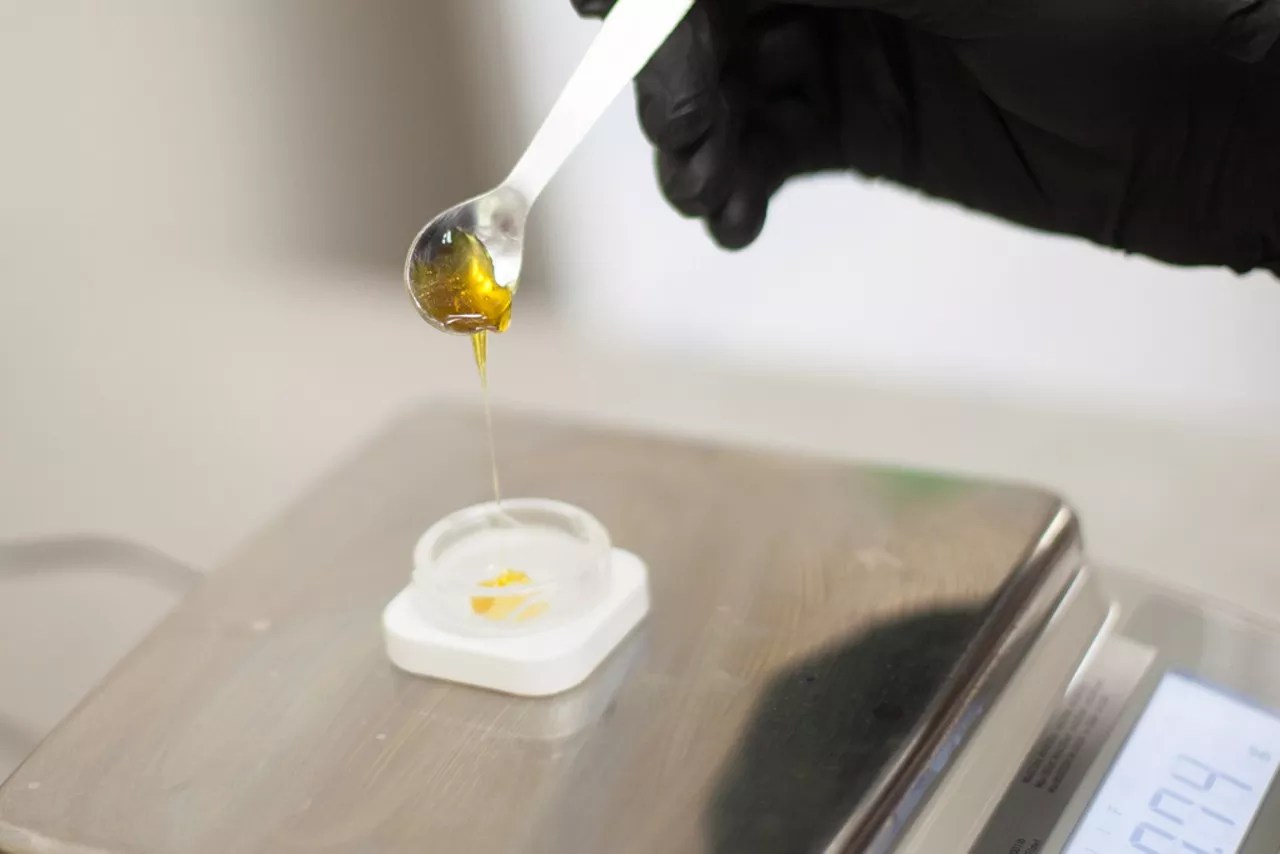
Jacqueline Collins

Audio By Carbonatix
The Colorado Legislature is on the verge of approving an expansive bill that would create stricter rules for medical marijuana and mandate state-funded research into the mental health effects of potent marijuana products.
On June 3, House Bill 1317 unanimously passed its third and final reading in the Senate, just over three weeks after it was introduced in the House. The measure calls for several additional layers of protocol for medical marijuana recommendations – including a required THC dosage amount and an expanded tracking system for patient purchases – as well as added medical and mental health reviews during patient applications; it would also institute new packaging requirements for commercial marijuana concentrates.
Lobbies representing parents, public educators and health-care representatives have pushed for more restrictions on concentrated THC products and medical marijuana sales to teenagers, pointing to state data showing that the use of marijuana concentrate increased among teenagers from 2017 to 2019 and has more than doubled since 2015.
Daily medical marijuana concentrate sales limits would be reduced from 40 grams to 8 under HB 1317, and new medical patients between the ages of eighteen and twenty – a contributing factor to youth consumption, in the eyes of the bill’s sponsors – would face additional obstacles to obtaining medical marijuana cards, as well as more limitations on the amount of marijuana concentrate they could buy every day.
Under the proposal, $3 million would also go to the Colorado School of Public Health for an educational campaign about youth use and extracted THC, with another $1 million annually through fiscal year 2023-’24 funding a CSPH review of existing research and further study of the mental health effects of marijuana. In another $1.7 million project, coroners would annually report the results of THC toxicology screens in suicide, overdose and accidental deaths for people under the age of 26 to the Colorado Violent Death Reporting System.
And all marijuana concentrate products, both medical and recreational, would fall under new packaging or labeling rules created by the state Marijuana Enforcement Division; new labeling requirements or photo instruction on packaging have been floated as possible alternatives.
The recreational marijuana industry’s stance on the bill is largely neutral, now that certain amendments regarding concentrate packaging and future research of THC’s effect on suicide and mental health were approved, but the majority of the state’s medical marijuana community still strongly opposes the bill, largely because of concerns over restricted patient access.
Although HB 1317 passed both chambers, the measure still requires one more House vote to approve amendments added in the Senate – and there are a lot of them.
Stuck in the middle of a three-way tug-of-war between bill advocates, the recreational marijuana industry and medical marijuana patients, the bill has been successfully amended 29 times; 14 of those changes came from the Senate. The majority of amendments passed so far have addressed the portions of the bill concerning concentrate packaging requirements, research and data collections, and medical marijuana physician and patient procedures going forward.
Lawmakers also approved amendments that changed public-announcement aspects of the suggested research project and loosened mental health review requirements for prospective medical marijuana patients. Another change to the bill would make child patients exempt from the concentrate limitation if they had a medical marijuana card prior to the measure’s implementation.
There is a legal argument that adding dosage and consumption rules to a medical marijuana recommendation makes that a prescription, and doctors with prescription power must register with the Drug Enforcement Administration, which doesn’t allow prescribing Schedule I drugs – a federal label that still applies to cannabis. A 2000 ruling in the Ninth Circuit Court of Appeals ruled that doctors in states with medical marijuana have the legal right to recommend marijuana but not prescribe it. An amendment added in the Senate explicitly states that the new requirements for medical marijuana recommendations do not qualify as a prescription, although dosage requirements are still part of the bill.
The date for the House vote has not yet been set.